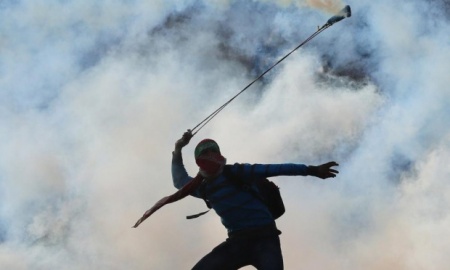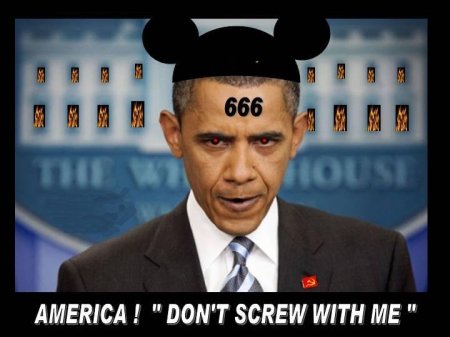General points
The most important thing to remember is that in general the police are not impartial. They are not interested in simply upholding the law and they are certainly not interested in upholding your rights; they are generally quite hostile to protestors. Years of collective experience have shown that the police generally consider it their job to stop you protesting if they can, or at least to make your protest less effective. Anything the police ask you to do or say at any time is for their benefit and not yours, and will often be detrimental to your interests.
The police are institutionally dishonest, and are full of dirty tricks. They will lie to try and convince you that your protest is illegal and that they have the power to stop you or move you. They will lie to try and convince you that you have to give them your details or that they have the power to search you. They will lie and exaggerate in statements to try and convict you of crimes you have not committed, and to cover up for themselves when they take unlawful action against you, such as unlawful arrests and stop and searches. The police lie most of the time. Most action taken by police against protestors is unlawful and is undertaken dishonestly and maliciously. These points cannot be emphasised enough, and they apply at all times: in the street, if you’re being raided, at the police station and in the courtroom.
Under these circumstances, the only sensible response is (1) non-cooperation with the police wherever possible, and (2) to assume that if a police officer is telling you something, he/she is lying. This applies during any contact you have with the police at any time. Don’t do anything the police tell you to do unless you have to. This applies especially if you’re under arrest and the police are very keen for you to do something (e.g. take a duty solicitor, talk during an interview, accept a caution, sign a piece of paper). If the police are putting pressure on you to do something, and making threats of what they’ll do if you don’t, this should set alarm bells ringing in your head. There’s a reason they’re keen for you to do it, so don’t do it (their threats will be empty threats). There are very few things that you have to do when a police officer tells you to, just the same as when anyone else tells you to do something. However, there are some circumstances where you have to comply with instructions from the police- see section 2.2. Therefore you should only do the things you have to do, and should not do anything you don’t have to do. Here are some examples, which apply in general (see here exceptions):
# If a police officer asks you to give them or show them something you are carrying, don’t.
# If a police officer tells you to stop filming him/her, carry on filming.
# If the police tell you to get out of your vehicle, don’t.
# If the police tell you to get in their vehicle, don’t.
# If the police ask to come into your house, don’t let them.
# If the police try and photograph you, turn and walk away.
# If a police officer tells you to sign something, don’t sign it.
# If a police officer tells you to go to them, stay where you are.
# If a police officer tells you to go somewhere, don’t go there.
# Unless you are being lawfully detained (e.g. for a stop and search, to use a police power to obtain your details, or you are under arrest; see section 2.2) you can lawfully walk or run away from the police.
Police will try to talk to you at a demonstration for one of four reasons: to give you an instruction or use some police power (such as arrest, stop and search, or gaining your details), to gain intelligence (under the guise of “friendly” conversation), to gain evidence against you to help them convict you, or to establish a rapport with you so that they can control you. If the police are talking to you, it’s for their benefit not yours, so don’t talk to them unless you have to. In general, you are under no obligation to speak to the police, or to answer any questions (see section 2.2 for exceptions). You can politely say you do not wish to speak to them, or you can remain silent. If you do have to talk to them, always record the conversation on video camera (see section 2.7 below). Do not engage in “friendly” chat with the police. In particular, respect other activists’ privacy: never discuss another person with the police. The police gain much of their intelligence from people who are willing to chat with them. What may seem like an irrelevant piece of information to you may be very important to the police. They want to know anything and everything they can find out about you and your friends. It is also important to remember that the police are not what you are there to fight against. If protestors become engaged in arguing with or talking to the police, this is a distraction from the purpose of the protest.
However, you will have to speak to the police if they are talking a lot of legal nonsense and telling you that you have to move, stop doing what you are doing or that they will arrest you; in other words if they are attempting to use their powers unlawfully. In these circumstances, a little legal knowledge can go a long way and you should calmly tell the police that they are talking nonsense- it is important not to become angry or aggressive. Remember to record any exchanges on a video camera. If they persist in talking nonsense, and they are attempting to use a police power unlawfully, it is best to stand up to them and not move or stop what you are doing, and not give your details when they ask. They may be bluffing; if so, you have won. If not, they will arrest you, but it will be an unlawful arrest and you may be able sue them (see section 5.2), in which case you have also won. Look upon unlawful arrests not so much as an inconvenience as a sound financial investment. However, it must be emphasised that you must be certain that the police are wrong, and you must record the arrest and the circumstances leading up to it on a video camera. Have the details of a friendly solicitor, or someone you know who has legal training/knowledge handy in case you need to take advice.
Non-co-operation with the police has its limits because there are some things that you have to do if the police tell you to, and not to do so is an offence…
Things Police Tell You To Do That You Have To Do
# If you’re actually under arrest, it’s an offence to actively resist or run away (sitting or lying down is passive resistance and is OK). Unless you are passively resisting, it also makes sense to get into a police vehicle if you’re under arrest. You are only under arrest once a police officer has touched you and told you you’re under arrest.
# Under certain circumstances the police have the power to give you directions as to where you must stand and how long you can remain there (for example under sections 12 and 14 of the POA 1986, and section 42 of the CJPA 2001, or if there is an injunction in place)
# There are certain circumstances where not to do what a police officer tells you to do constitutes the offence of obstruction of a police officer in the course of his duty (see under “Trespass” and “Breach of the Peace”).
Unfortunately, you also have to do the following (this list is not exhaustive):
# Stop your vehicle if you’re on a highway and the police signal you to stop (See under “Being stopped in a Vehicle”)
# Give your details in certain situations (see under “Giving Your Details”)
# Let the police search you in certain situations (see under “Stop and Search Powers”)
# Remove a face covering or give the police something they believe may be used as a face covering in certain situations (see under “Criminal Justice and Public Order Act 1994 (CJA)”).
# Let the police take your fingerprints, DNA and photograph if you’re under arrest
# There is one thing worth signing, and some bits of paper that you have to take, when you are under arrest (see under “Getting Arrested”), but don’t sign anything else, under arrest or otherwise.
Voluntary Exceptions to Non-Cooperation with the Police
There are also rare occasions when you might choose to talk to or co-operate with the police. These are:
# The police liaison person (see section 2.4).
# If someone commits some crime against you and you want to make a complaint. In general, such complaints don’t go anywhere and are a waste of time, but a few do succeed.
Police liaison person
Not withstanding the above, sometimes the police are not too hostile, and if this is the case, nominating a protestor as a police liaison person can be beneficial. When the police arrive, the police liaison person goes to meet them and introduces themselves in a friendly way. They may say something like, “Hello, I’m John and I’m the police liaison person today. Shall we just go over here where we can hear each other better for a chat?” They then take the police to one side. This takes the police away from the other protestors, who can carry on the protest and not be distracted by the police. The liaison person will then talk to the police about what they’re doing and say things like, “As you can see we’re just holding a peaceful and lawful protest against XXXXX, we’re not going to be causing any trouble, we won’t cause an obstruction, etc., etc.” This may take the police by surprise, and may make them behave much nicer towards you, and allow the protest to continue without disruption. The conversation must be recorded with a video camera. If the police start talking nonsense about what you can and cannot do and using their powers unlawfully, the liaison person can then argue (politely) with them, and the other protestors are not involved. Again this will only work if the police are not entirely hostile; if they are hostile, it will become obvious quite quickly and the police liaison approach can be abandoned. Then it’s back to the non co-operation approach as outlined in general points
Giving your details
The police will always want to know who you are and where you live. You do not have to give them your details except under a very few circumstances:
# if you are driving a vehicle and you have been stopped
# if you have been arrested (unless it’s to prevent a breach of the peace)
# if they reasonably suspect you of committing an offence and they want to report you for a summons or issue a fixed penalty (see below).
# if they reasonably suspect you of anti-social behaviour, which is defined as behaviour likely to cause alarm, harassment or distress. Anti-social behaviour differs from a section 5 POA 1986 offence in that it does not involve being threatening, abusive or insulting. Anti-social behaviour is not a criminal offence but suspicion of it does give police the power to require you to give them your details. Refusal to do so is an offence. This has been used to try and get protestors’ details, but remember that holding a peaceful and lawful protest is a guaranteed right and is not anti-social behaviour.
So, if you are just taking part in a peaceful demonstration, in general you do not have to give your details, and you should refuse. If they say that they need your details because they suspect you of an offence, ask them what offence they suspect you of, and on what grounds they suspect you. Normally they will come out with a load of nonsense, and you should challenge them on that. Police will often try do deal with minor offences by way of fixed penalty (on the spot fine) or summons, i.e. without arresting you, because they know that if they do this, if it turns out later that there is no case against you, you cannot sue them; you can only sue them if you have spent time in custody. If, however, they arrest you and then it turns out there is no case against you, you stand to make a lot of money by sueing them for false imprisonment, assault, interfering with your human rights and possibly malicious prosecution (see section 5.2). If they say you have to give your details because they suspect you of anti-social behaviour, you should ask what you have done that’s antisocial and what their evidence is, and remind them that peaceful protest is not anti-social behaviour. Normally when they say they suspect you of committing an offence or anti-social behaviour they are lying; they are merely trying to stop your protest and get your details.
Normally, we would recommend that you do not give your details if the police say they suspect you of an offence or of anti-social behaviour because the police usually do not have reasonable grounds to suspect protestors of these things. If you do not give your details, the police will either back down because they were bluffing all along (quite common), or they will arrest you for the suspected offence. However, it must be emphasised that it is only worth not giving your details and risking being arrested if you know the arrest would be unlawful and you can prove it, because then you may be able to sue them later (see section 5.2). It is important to video all arrests and the events leading up to them for this purpose (see section 2.7). The arrest is unlawful if they do not have reasonable grounds to suspect you of any offence, or of anti-social behaviour. You need to decide based on the circumstances whether or not the police have reasonable grounds to suspect you of these things. If they do have reasonable grounds, or if they don’t have reasonable grounds but you can’t prove it, you should give your details. Reasonable grounds for suspicion of an offence are that a genuine offence has been committed (i.e. not one dreamed up by the police by twisting the laws to suit their needs) and they have reasonable grounds to think you have committed it (for example they have a complaint about you from a member of the public, or the police witnessed you committing it themselves). If they suspect you of an offence and they arrest you because you do not give your details, you do not get yourself into any extra trouble, even if the arrest is lawful. However, if they have reasonable grounds to suspect you of anti-social behaviour, you commit an offence by refusing to give your details, so that one’s a bit more risky.
If you get a summons, you should normally plead not guilty, and you must get a solicitor as soon as possible. If you get a fixed penalty, don’t pay it. On the back of the penalty notice is a form you can send off to request a court hearing. Fill in and send this form; they may or may not send you a summons, to which you should normally plead not guilty.
Stop and search powers
Under normal circumstances, the police have no right to search you. The situations when they can search you are:
1. If they have reasonable grounds for suspecting that you are carrying stolen or prohibited articles or articles with a sharp point or blade. Prohibited articles are offensive weapons (articles made or adapted for causing injury or carried with the intention of causing injury) and articles made or adapted for use in committing burglary, theft, fraud or criminal damage or carried with the intention of committing these offences. (S1 PACE).
2. Police may search anyone they reasonably suspect to be a terrorist for evidence that he is a terrorist (Section 45 Terrorism Act 2000)
3. If a Section 60 (CJA) authorisation is in effect, police can stop and search anyone in the area covered by the authorisation. This can only be used if there is a risk of serious violence, and you can only be searched for offensive weapons.
4. If a Section 44 (Terrorism Act 2000) authorisation is in effect, police can stop and search anyone for items that could be used in connection with terrorism. They can search pedestrians, drivers and passengers in vehicles. However, S44 has been found to be illegal by the European Court of Human Rights and so should not be used.
The main point to remember here is that unless a section 60 or section 44 authorisation is in effect, the police must have some sort of reasonable suspicion that you are carrying something you shouldn’t be before they can search you. Searches of protestors are normally carried out unlawfully. Therefore challenge the police officer searching you. Ask them under what power they are searching you, and their reasons for searching you. If they are searching you under Section 1 of PACE, ask what they suspect you of carrying, and their grounds for suspicion. If you have been stopped and searched, you do not have to give your details (they will ask), but the police officer must give you a record of the search with his details and the reasons for the search. It’s best not to carry wallets or other personal items that will give the police your identity if you are searched. However, it may be wise to give your details if you want to make a complaint about the search later (see section 5.1). If you know that the search is unlawful and you can prove it, it is best not to co-operate with the search; if they arrest you for obstructing a police officer because of your non-cooperation, the arrest is unlawful and you may be able to sue the police. It is important to video all arrests and the events leading up to them for this purpose (see section 2.7). You can only be searched by an officer of the same gender as you.
Cameras
Video cameras will protect you against false and malicious allegations (from the police and members of public) and will prevent some of the excesses of police behaviour. They will also help you sue the police and make complaints (see section 5). The video camera is your friend; for most protests they are essential. We recommend recording all exchanges with police, community support officers, security guards, etc.; we do not talk to the police unless there is a camera rolling. It is also important to get a lot of general footage of the protest, both before and after the police arrive, to show what you were doing. In the past, we have been victimised by police to the extent that we have had to record the entire protest and everything that happened in order to protect ourselves from malicious allegations from the police. However, the police do not like having cameras pointed at them, precisely because it protects us and prevents them making up lies about us, telling us lies or abusing their powers. They will tell you that you’re not allowed to film them, that it’s against their human rights to photograph them without their permission, that it’s a security risk. These things are not true. They may threaten to seize the camera, but they are not allowed to do this unless they believe it contains evidence of an offence. They may try to physically stop you filming them, but this is an assault. You are allowed to video the police (or security guards, or community support officers or anybody else). However, beware of the following:
# Get the permission of the other protestors before you record them
# Be careful not to use tapes/memory cards that have material on from previous protests that you don’t want the police to see, in case you get arrested.
# If you are arrested with a camera, the police will seize it and retain it as evidence. It is therefore a good idea, if arrests take place, that the cameraperson avoids arrest if possible, for instance by complying with any police directions even if they are unlawfully imposed. If you are arrested with a camera, it may be possible to hand it to someone else before you get carted away.
# However, even if the cameraperson is not arrested, the police have the power to seize anyone’s camera if they believe it may contain evidence of an offence. The police often use this power dishonestly to confiscate any footage that might show they are acting unlawfully. Be aware that if people are videoed being arrested, the police may suddenly grab the cameraperson or their camera for this reason.
Being Stopped in a Vehicle
If you are driving a vehicle on a highway and a police officer signals you to stop, you must do so. The driver must give his or her details if the police ask for them. It is also sensible to answer questions related to the legality of your driving, e.g. whether you’re insured or not, etc., but do not answer other questions. However, no passengers are required to give their details (unless the police suspect them of an offence or anti-social behaviour) or speak to the police. The driver does not have to get out of the vehicle, or open their door or window more than is necessary to speak to the officer. Typically what happens when an activist’s vehicle is stopped is that the police will try to open the driver’s door and remove the key from the ignition. They may also try to open other doors. This is unlawful unless they are arresting someone or have power to stop and search the vehicle or people in it. Whenever you are stopped in a vehicle by the police, it is best therefore to lock all doors and remove the key from the ignition. Someone should video the incident from inside the vehicle. The driver should wind his or her window down about a couple of inches. If the window is opened any more, the police will reach inside and unlock the door. Let the driver do the talking; everyone else should stay quiet. The police may ask the driver for ID or driving documents, but you are not required to carry any. They will probably ask who owns the vehicle so if it is not yours, you must know who it’s registered to (it is sensible to answer this question). They may give you a ticket (known as a producer) that requires you to produce your licence, insurance certificate and MOT certificate at a police station within 7 days. Needless to say, any vehicle used for activism must be 100% legal and roadworthy.








 Posted by Martin X
Posted by Martin X 








